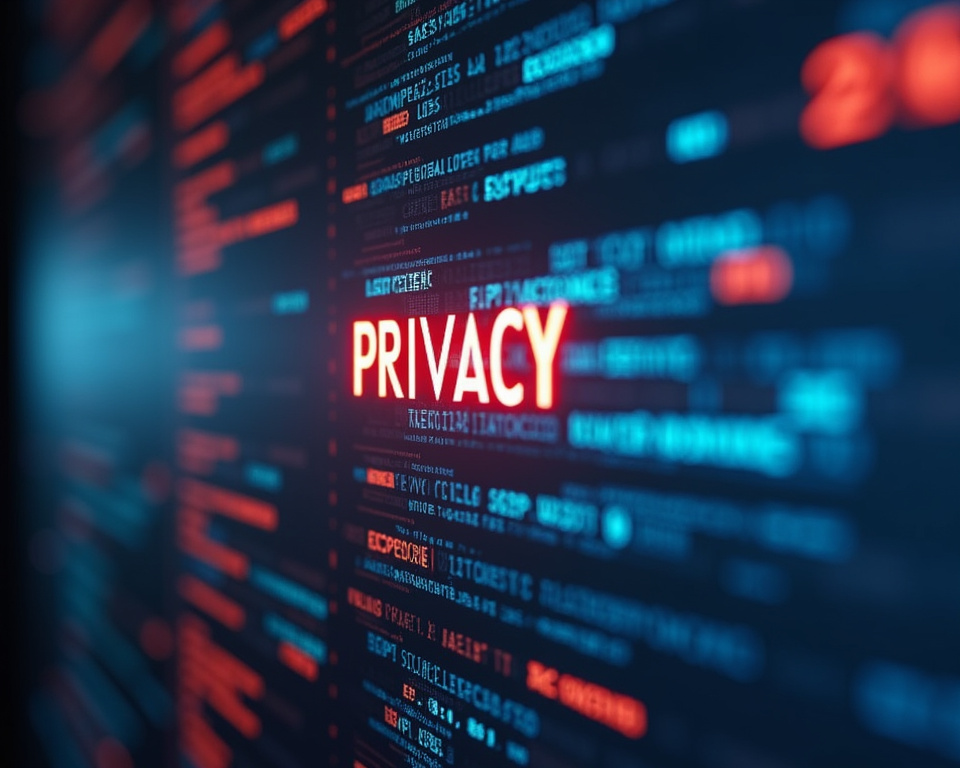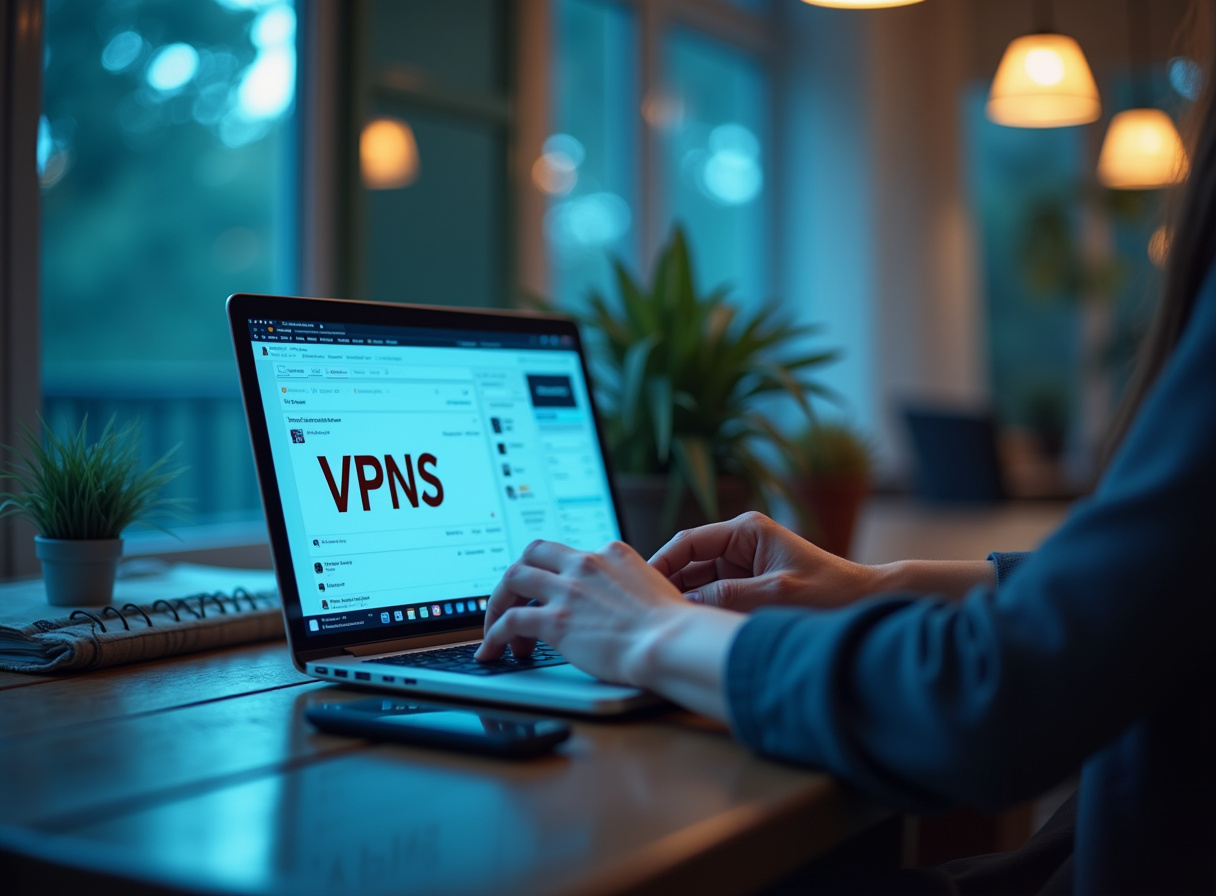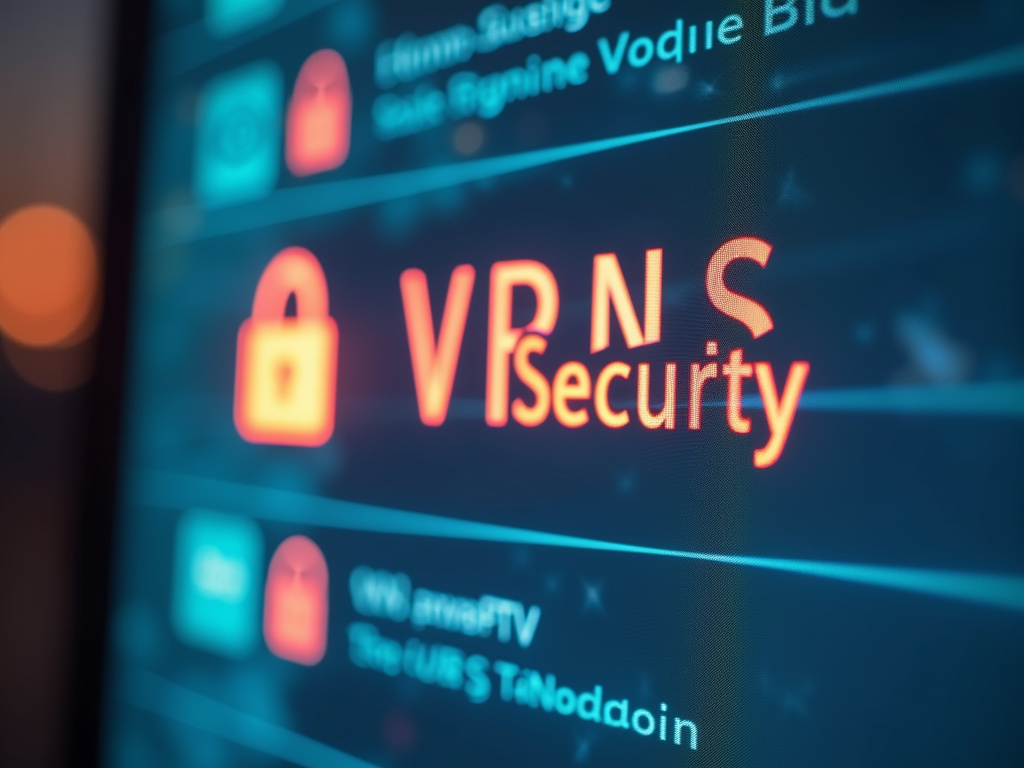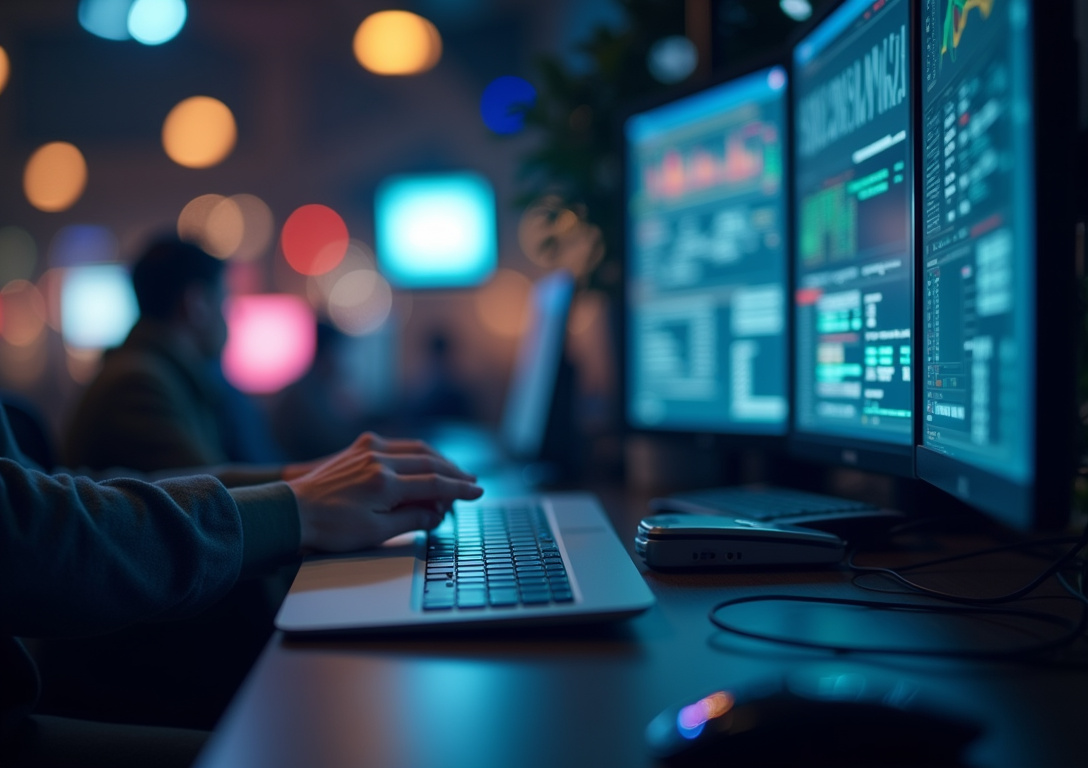VPNs for Social Media Influencers: Protecting Personal Brand

Table of Contents
- Paragraph 1: The Digital Stage: Why VPNs are Essential for Social Media Influencers
- Paragraph 2: Unveiling the Threats: Potential Risks and Vulnerabilities Faced by Influencers
- Paragraph 3: The VPN Advantage: How VPNs Safeguard Influencer Online Personas
- Paragraph 4: Key Considerations When Choosing a VPN for Social Media Influencers
- Paragraph 5: Optimizing VPN Usage for Social Media Influencers: Best Practices & Advanced Tips
Paragraph 1: The Digital Stage: Why VPNs are Essential for Social Media Influencers
In this article, we delve into the critical role of Virtual Private Networks (VPNs) in safeguarding the online presence and personal brands of social media influencers. We'll explore the unique security risks they face in today's digital landscape and how leveraging VPNs can provide a much-needed layer of protection, ensuring their brand reputation, content privacy, and overall online security. Finally we will dive into the use of influencer VPNs, and we will compare services that offer privacy for influencer’s creative content and marketing strategies.
In today's hyper-connected world, social media influencers have emerged as powerful voices, shaping opinions, driving trends, and building thriving online communities. From lifestyle gurus and beauty experts to tech reviewers and travel bloggers, these individuals have cultivated significant influence, commanding the attention of millions of followers and partnering with brands to promote products and services. Their success hinges on cultivating a strong online presence, crafting engaging content, and fostering authentic connections with their audience.
The perception of authenticity and trust is paramount, as followers rely on their recommendations and insights. However, this very public persona also makes them prime targets for cyber threats, privacy breaches, and brand reputation attacks. The digital landscape is riddled with challenges, from malicious hackers seeking to compromise accounts to competitors attempting to tarnish their image, and even overzealous fans crossing boundaries.
This is where the crucial role of an 'influencer VPN' comes into play. A Virtual Private Network (VPN) acts as a shield, safeguarding their sensitive data, protecting their online activities, securing their communications, and ensuring the integrity of their carefully curated 'online persona security'. It provides a secure and encrypted connection, masking their IP address, and preventing unauthorized access to their personal information.
The vulnerability stems from various sources. Public Wi-Fi networks, often used by influencers while traveling or attending events, are notoriously insecure, lacking the necessary encryption to protect data transmitted over them. Think of it like broadcasting your personal conversations in a crowded coffee shop – anyone can listen in.
Hackers can easily intercept sensitive information like passwords, login credentials, and personal details, potentially leading to account takeovers and identity theft. Imagine the damage caused by a hacker gaining control of a high-profile influencer's account, posting inappropriate content, or spreading misinformation. Furthermore, the content influencers create, often containing confidential information, marketing strategies, or pre-release details can be intercepted and leaked, undermining their competitive advantage and potentially breaching contractual obligations.
A VPN creates a secure, encrypted tunnel, ensuring that all data transmitted through it is protected from prying eyes. This encrypted connection not only protects against external threats but also provides enhanced 'content privacy'. It allows influencers to conduct research, communicate with brands, and access geographically restricted content without fear of exposing their location or personal information.
For example, an influencer researching a sensitive topic or collaborating with a brand on a confidential campaign can use a VPN to ensure their communications remain private and secure. 'Brand protection' is significantly enhanced through the use of VPNs. Social media influencers' brands are inextricably linked to their online personas, making them a valuable asset to protect.
Their reputation is their currency, and any compromise of their accounts or the dissemination of harmful content can severely damage their reputation and lead to loss in partnership opportunities. A single security breach can erode trust with their audience, leading to a decline in followers and engagement. By masking their IP address and encrypting their internet traffic, VPNs make it much more difficult for hackers to track their location or identify their devices, significantly reducing the risk of targeted attacks.
VPNs are also vital tools for maintaining 'content privacy' in a world of increasing surveillance and data tracking. Many influencers create exclusive content for their subscribers or patrons, which they want to keep safe from unauthorized access. This could include early access to videos, behind-the-scenes glimpses, or exclusive merchandise.
A VPN helps prevent eavesdropping and protects confidential information from falling into the wrong hands, ensuring that only authorized individuals can access it. In essence, VPNs arm influencers with the digital protection needed to confidently navigate the complexities and dangers of the online realm, allowing them to focus on creating engaging content and building meaningful relationships with their audience, without constantly worrying about security breaches and privacy violations. It's an investment in their long-term success and the preservation of their valuable online brand.
Paragraph 2: Unveiling the Threats: Potential Risks and Vulnerabilities Faced by Influencers
Social media influencers face a unique and complex set of security risks stemming directly from their high visibility and constant online activity. Their very public profiles and the nature of their engagement, which often involves sharing personal details, opinions, and activities, make them particularly susceptible to a wide array of threats. These range from relatively common issues like account hacking and identity theft to more sophisticated attacks such as location tracking, reputation damage orchestrated by competitors, and breaches of 'content privacy', leading to financial losses and emotional distress.
Understanding these vulnerabilities is the first step in implementing effective protection measures, with VPNs playing a crucial role. Many influencers unknowingly expose sensitive information through unsecured Wi-Fi networks when accessing content via mobile devices or laptops in public spaces. The allure of free Wi-Fi in cafes, airports, and hotels is undeniable, but the lack of proper encryption on these public hotspots creates an open door for cybercriminals.
They can easily intercept data transmitted over the network, including passwords, login credentials, personal financial information, and even unencrypted communications. This allows hackers to gain unauthorized access to their social media accounts, email accounts, cloud storage services, and other sensitive online platforms. Once an account is compromised, the consequences can be severe, including defacement of profiles with inappropriate or offensive content, sending spam messages to followers, stealing personal information for identity theft, and even hijacking their entire online presence for malicious purposes such as spreading misinformation or conducting fraudulent activities.
This is why total 'online persona security' must be guaranteed. Another pressing concern is the risk of location tracking. Influencers often share their location in posts or stories, whether intentionally to highlight a specific destination or inadvertently through geotagging features.
While this can enhance engagement and provide valuable context to their content, it also exposes them to potential dangers. Stalkers, identity thieves, or even competitors can exploit this geo-location data to track their movements, learn their habits, and potentially identify their home address, travel plans, and daily routines, putting their personal safety at risk. Moreover, some companies use sophisticated location tracking technologies to gather data on influencers' movements and preferences to target advertising or gain competitive intelligence.
A VPN mitigates this risk by masking the user's real IP address with one from a server in a different location. This makes it far more difficult for websites, advertisers, and other third parties to pinpoint their true location. Furthermore, the risk of doxxing, where malicious actors publicly reveal an influencer's personal information, including their home address, phone number, and other sensitive details, can have devastating consequences.
Doxxing can lead to relentless harassment, threats, stalking, and even physical harm, causing significant emotional distress and disruption to their lives. Protecting against this requires robust 'online persona security' measures, including strong passwords, two-factor authentication, and the use of VPNs to mask their IP address and prevent identification. Moreover, 'brand protection' is constantly under threat from malicious actors who actively seek to tarnish their reputation and undermine their credibility.
This can take various forms, including spreading false rumors, creating fake profiles to impersonate the influencer, engaging in coordinated attacks to damage their image or sabotage their campaigns, and even manipulating social media algorithms to suppress their content. Competitors may also attempt to steal their ideas, copy their content, or undermine their partnerships with brands. A VPN can provide a valuable layer of anonymity, making it more difficult for these actors to track their activities and launch targeted attacks.
'Content privacy' is yet another area of significant concern, as influencers frequently generate exclusive content for their subscribers, patrons, or clients. This content can be vulnerable to theft, unauthorized distribution, or even industrial espionage if not properly protected. For instance, an influencer might be working on a confidential product review, a sponsored campaign with pre-release details, or exclusive behind-the-scenes footage for their premium subscribers.
A VPN can help prevent eavesdropping and protect confidential information from falling into the wrong hands, ensuring that such sensitive content remains protected from unauthorized access. By encrypting the data transmitted over the internet, a VPN minimizes the risk of interception and theft, allowing influencers to maintain control over their intellectual property and protect their relationships with their audience and brand partners.
Paragraph 3: The VPN Advantage: How VPNs Safeguard Influencer Online Personas
Influencer VPNs offer a robust suite of security features that protect their online activities and personal brand. The core function of a VPN is to create an encrypted tunnel for all internet traffic, shielding data from prying eyes and ensuring privacy. This encryption acts like a digital vault, making it virtually impossible for anyone to intercept and decipher the data transmitted between the influencer's device and the internet.
By masking their IP address and routing traffic through secure servers located in different geographical locations, VPNs make it impossible for hackers, government agencies, advertisers, or even nosy internet service providers to track their online activities, identify their location, or monitor their browsing history. The result is digital anonymity, and peace of mind. The advantage of using a VPN in the world of social media is multifaceted.
Account security is greatly improved in that the VPN protects login credentials and other sensitive information from being intercepted by cybercriminals, mitigating the risk of theft and illicit entry. When an influencer connects to a VPN server, their IP address, which is a unique identifier for their device, is replaced with the IP address of the VPN server. This effectively hides their true location and identity, providing a layer of anonymity that protects them from targeted attacks.
In addition, the encryption provided by the VPN scrambles their data, making it unreadable to anyone who might try to intercept it. This is crucial for protecting sensitive information such as passwords, credit card details, and personal communications. By encrypting their internet connection, influencers make it much more difficult for hackers to gain access to their accounts.
The end goal is to provide total 'online persona security', strengthening their defense against cyber threats and preserving their reputation. Securing sensitive information also provides better 'brand protection' in that sensitive business communications and collaborative marketing data are kept away from the hands of business competitors or other parties who may benefit from sensitive marketing data that hasn't launched publicly. Influencers often exchange confidential information with brands, agents, and other collaborators, including campaign strategies, product details, and financial agreements.
By using a VPN, influencers can ensure these communications remain private and secure, protecting their competitive advantage and maintaining their professional relationships. VPNs also help protect against denial-of-service (DDoS) attacks, which are designed to overwhelm a website or server with traffic, making it unavailable to users. These attacks can disrupt an influencer's online activities, damage their reputation, and lead to financial losses.
A VPN can help mitigate DDoS attacks by distributing the traffic across multiple servers, making it more difficult for attackers to overwhelm the network. The 'content privacy' granted with a good influencer based VPN ensures that the influencers can research new content ideas and strategies without fear of being tracked or monitored. They can access geographically restricted content, conduct sensitive research, and explore new topics without revealing their identity or exposing their data.
For example, an influencer who is planning a trip to a foreign country can use a VPN to access local websites and services without revealing their location. Similarly, an influencer who is researching a controversial topic can use a VPN to protect their privacy and avoid being targeted by those who disagree with their views. Furthermore, an influencer can protect their videos or other creative content by using a VPN during content creation and editing.
They ensure that any accidental uploads or breaches of confidentiality can have the trace back address hidden from prying eyes. With a VPN, influencers can confidently explore new avenues, expand their horizons, and create innovative content without compromising their privacy or security. In short, VPNs are an invaluable tool for social media influencers, empowering them to protect their online activities, maintain their privacy, and safeguard their brand reputation.
Paragraph 4: Key Considerations When Choosing a VPN for Social Media Influencers
Selecting the right influencer VPN requires careful consideration of several factors, ranging from security protocols and server locations to speed, ease of use, and cost. Not all VPNs are created equal, and choosing the wrong one can leave influencers vulnerable to security breaches or lead to a frustrating user experience. A comprehensive evaluation of these key aspects is essential to making an informed decision that aligns with their specific needs and priorities.
Primarily, the VPN's stated intention to protect user privacy and internet usage data should come first. First and foremost, security is paramount. Influencers must prioritize VPNs that employ strong encryption protocols, such as Advanced Encryption Standard (AES) with a 256-bit key, which is considered military-grade encryption and virtually unbreakable.
They should also look for VPNs that offer a variety of security features, including a kill switch, which automatically disconnects the internet connection if the VPN connection drops, preventing data from being exposed. DNS leak protection is another crucial feature, ensuring that DNS requests are routed through the VPN server rather than the ISP's server, further protecting their privacy. A strict no-logs policy is also essential, meaning that the VPN provider does not collect or store any data about their users' online activities, offering better 'online persona security'.
Audits of no-log policies by independent third parties is highly desirable to ensure that providers aren't misleading potential users about how they track data. The reputation of the owning company should also be reviewed to determine whether any of its past actions undermine claims to security and privacy. Server network is equally crucial.
A VPN with a wide network of servers in various locations worldwide allows influencers to bypass geographical restrictions, access content from different regions, and optimize their connection speed. The more server locations a VPN offers, the greater the flexibility and control influencers have over their online experience. For example, if an influencer wants to access content that is only available in a specific country, they can connect to a VPN server in that country to mask their location.
They also need to ensure that there are enough numbers of users versus servers available in the network, as too many users can impact connection speed. Also, the specific tasks that the influencer needs to perform will weigh heavily on the user experience, and a large server network that is slow may not be as useful as a smaller network with very fast speeds. Speed and performance are critical for influencers who rely on fast and reliable internet connections to upload videos, stream live content, and engage with their audience.
A slow VPN can significantly impact their productivity and frustrate their followers. Influencers should look for VPNs that offer high-speed servers and optimized performance, avoiding those that are known for causing significant speed reductions. Reading reviews and testing out different VPNs with trial periods are helpful ways to assess their speed and performance.
Fast upload and download speeds are particularly important for content creators who frequently upload large video files. Ease of use is another important consideration, particularly for influencers who are not tech-savvy. A user-friendly interface and intuitive controls are essential for ensuring a seamless and hassle-free experience.
Influencers should look for VPNs that offer simple and straightforward apps for their devices, with clear instructions and helpful support resources. A complicated or confusing VPN can be difficult to set up and use, leading to frustration. The ability to easily switch between servers is also helpful, as it allows influencers to quickly access content from different regions.
In this highly competitive market, most providers offer services on virtually all modern platforms. Finally, cost is always a factor, but influencers should prioritize security and performance over price. While free VPNs may seem tempting, they often come with significant drawbacks, including limited bandwidth, slower speeds, intrusive ads, and questionable security practices.
Investing in a reputable and reliable paid VPN is a worthwhile investment in their 'brand protection' and 'content privacy', providing peace of mind and ensuring a better overall experience. Influencers should compare the pricing plans and features of different to find one that fits their budget and needs. Some may offer discounts for longer-term subscriptions, or for multiple connected devices, but the core features should align with their security needs first.
Paragraph 5: Optimizing VPN Usage for Social Media Influencers: Best Practices & Advanced Tips
Beyond simply subscribing to a VPN, social media influencers can take several proactive steps to optimize their VPN usage and maximize their online security. These best practices and advanced tips can significantly enhance their 'online persona security', strengthen their 'brand protection', and safeguard their 'content privacy' in an increasingly complex digital landscape. It will take a combination of awareness and savvy to completely navigate the current threat model that faces a successful influencer.
First, securing all devices is paramount with the VPN. Given that influencers often use multiple devices, including smartphones, laptops, and tablets, to manage their online presence, it's crucial to install and configure the VPN on all of them. Many VPN service providers offer multi-device support, allowing users to connect several devices simultaneously with a single subscription.
Consistent protection across all access points minimizes the risk of a security breach through an unprotected device. Furthermore, it is important to ensure the VPN software auto starts whenever the device does to guarantee constant protection. Configuring the VPN settings for optimal security is also a crucial element of awareness.
While most VPNs offer default settings, influencers should take the time to explore the advanced options and tailor them to their specific needs. This includes selecting the strongest encryption protocol, enabling the kill switch, and activating DNS leak protection. Considering using multi-hop connections if they are available.
This feature routes the internet traffic through multiple VPN servers, adding an extra layer of security and anonymity. It can obscure the origin of internet traffic, making it even more difficult for third parties to track their online activities. Influencers should experiment with different server locations to find the optimal balance between speed and security.
It's essential to regularly update the VPN software. VPN providers frequently release updates to address security vulnerabilities, improve performance, and add new features. Regularly updating the VPN software ensures that influencers have the latest protection against emerging threats.
Outdated software may contain security flaws that can be exploited by hackers, compromising their online security. Most VPN apps have automatic update features which should be enabled. Beyond the practicalities of always securing connections with a VPN, influencers should take advantage of password managers to generate random and difficult to crack passwords for their online accounts.
Password managers are excellent not just at storing password data but can also suggest better passwords to users, and also automatically populate login credentials and forms. With this function, if a user is ever asked for login information and the credentials are not automatically filled, then they are likely on a malicious site. This offers an active defense against phishing scams.
Influencers should also be wary of phishing scams and social engineering attacks: Cybercriminals often use phishing emails, fake websites, and social media messages to trick influencers into revealing their login credentials or personal information. Influencers should be cautious when clicking on links or opening attachments from unknown sources. Verifying the authenticity of websites and communications before providing any sensitive information is also advisable.
It may also be helpful to set up alerts which monitor the use of their emails in different places, and this can be easily configured through various online services. Finally, influencers may consider using a separate VPN for sensitive activities. For highly sensitive activities, such as managing their finances or handling confidential information and engaging in financial transactions, influencers may consider using a separate VPN dedicated solely to those tasks.
This adds an extra layer of security and compartmentalization, minimizing the risk of exposure. They should disable location services when not needed and set up two factor authentication on all accounts. Ultimately, using VPNs and practicing strong digital safety habits can minimize the threat presented to social media influencers who rely on the internet and their social media platforms so heavily.
Stay Updated
Get the latest VPN news, tips, and exclusive deals to your inbox.




